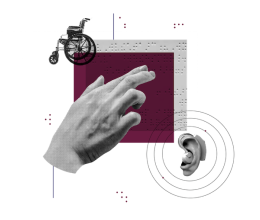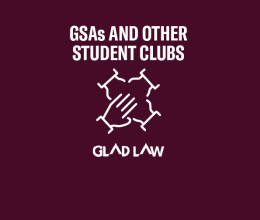Maine’s highest court reversed a decision that punished a family for the state’s own failure to provide nursing services for a child and accommodate his mother.
PORTLAND – Maine’s Supreme Judicial Court yesterday overturned a lower court order that terminated a mother-child relationship after the state failed to provide nursing services to the child who was legally entitled to them. The Law Court’s decision is a victory for disabled parents and children, finding that families should not be separated when the state fails to provide legally required services and accommodations to ensure families can stay together.
Disability Rights Maine and the ACLU filed an amicus brief with the Court in August 2023. The organizations argued the state should have evaluated whether the mother could have cared for her child if given the nursing services to which he was legally entitled. Instead, the state inappropriately terminated the mother’s parental rights because she was unable to provide complex nursing care on her own, effectively punishing her for the state’s own failure.
The Court agreed. It stated: “The Department [of Health and Human Services], which administers MaineCare [Maine’s Medicaid program], has never provided the child with this level of care. The record contains vague references to nursing shortages and problems surrounding the COVID-19 pandemic, but there is nothing indicating that the Department made any attempt to secure 24/7 nursing care, or anything close to it, for the child . . . Inadequate resources do not excuse a state’s obligation to provide benefits under Medicaid.”
The organizations’ amicus brief also raised the issue, for the first time in the appeal, that the mother herself may be entitled to reasonable accommodations because of a possible intellectual disability. Parents with disabilities are entitled to reasonable accommodations in the reunification process in child welfare cases such as this one. The Court agreed, and ordered the lower court to reconsider whether the mother has an intellectual disability and “how it bears on both parental fitness and the Department’s reunification obligation.” The Court said a parental evaluation flagged concerns about the mother’s cognitive function, but HHS “never followed up to determine whether the mother has an intellectual disability.” The opinion noted that had HHS “inquired further and obtained a diagnosis of intellectual disability, the Department might have owed obligations not only to provide medical services to the child, but also to provide services to the mother to manage the child’s needs in pursuit of rehabilitation and reunification.”
The unanimous court decision highlights several systemic failures in Maine’s child welfare systems where disability is involved. In 1999, the U.S. Supreme Court held in Olmstead that the unnecessary institutionalization of people with disabilities is discrimination, resulting in a shift to integrated, community-based services. However, adults and children with disabilities often do not receive the services to which they are entitled, either because of inadequate resources, as with the child in this case, or a lack of basic understanding that people with disabilities have the legal right to accommodations so they can enjoy the same opportunities as people without disabilities, as with the mother. The Court also noted the recent U.S. Department of Justice finding of DHHS’s failure to provide sufficient community-based services to children with behavioral and developmental disabilities.
“The parent-child relationship is one of the most fundamental, and the Constitution protects that right for all people, including people with disabilities,” said ACLU of Maine Legal Director Carol Garvan. “The Court’s decision in Barni A. involves one family, but the impact of this decision will be far reaching. The State of Maine is now on notice from its highest court that there is no excuse for denying necessary services to parents and children, and that the state can no longer blame and punish families for the state’s own failures.”
“The importance of this decision to both parents and children with disabilities cannot be overstated,” said Disability Rights Maine Managing Attorney Lauren Wille. “It sends a very clear message to the Department of its responsibilities: that necessary services must be more than simply ‘authorized’; they must actually be provided. It is also a long-overdue reminder that the Department must accommodate parents with disabilities, who are overrepresented in the child welfare system, throughout the reunification process.”
Read the Court's opinion in the PDF at the bottom of this page or here.







